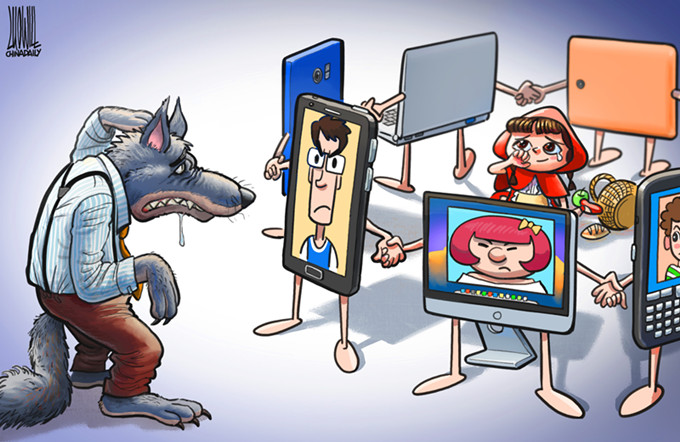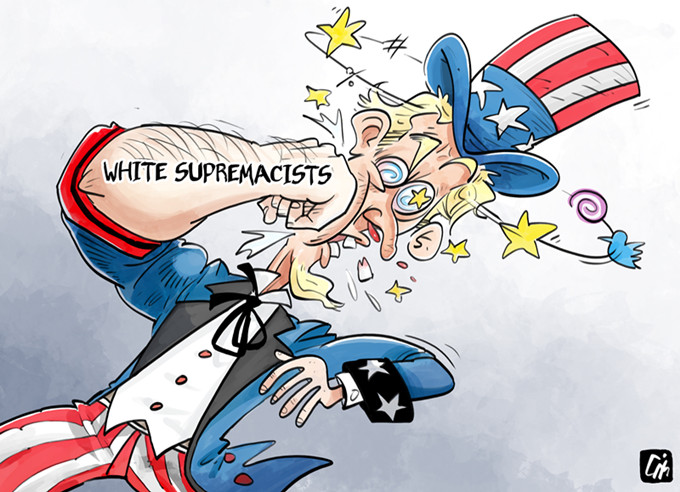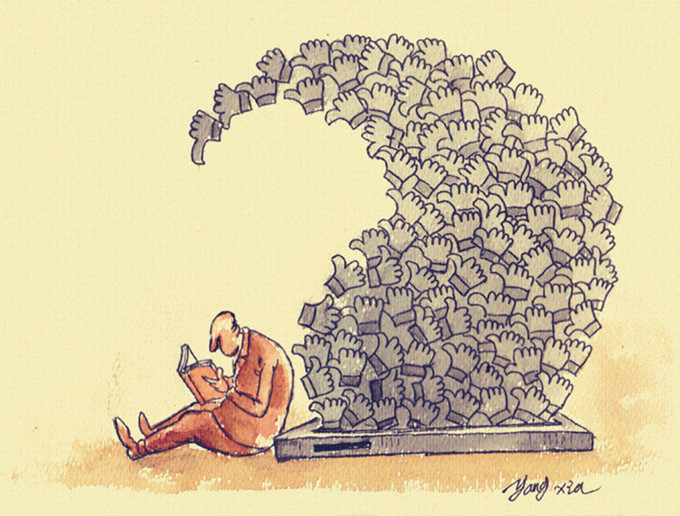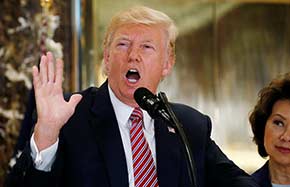Bannon's self-declared war is over
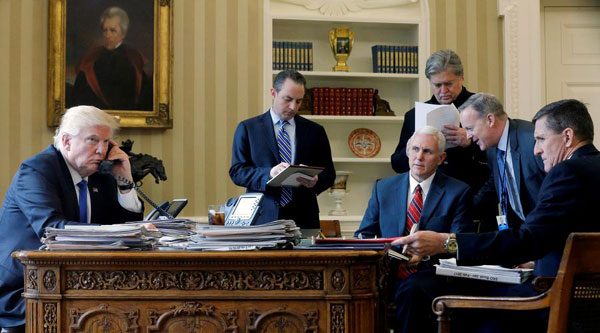 |
|
The file photo shows US President Donald Trump is joined by (L-R) Chief of Staff Reince Priebus, Vice President Mike Pence, senior advisor Steve Bannon, Communications Director Sean Spicer and National Security Advisor Michael Flynn in the Oval Office at the White House in Washington, US January 28, 2017. [Photo/Agencies] |
The war is over for former White House chief strategist Steve Bannon. The political combatant has won major battles but lost his self-declared war. Being forced to hear the line "you're fired" and leave his last stronghold in Washington after his removal from the National Security Council in April, this advisor to the US president has been banished from the inner circle by the trend of history.
No doubt his startling phone conversation with Robert Kuttner, co-founder and co-editor of The American Prospect, was the final straw that helped sink this warmonger. Maybe he didn't expect his desperate reaching-out to one more like-minded supporter would spread like the wind.
The US president himself may not have liked it because Bannon's confession that there is "no military solution" to the Korean Peninsula crisis compromised Donald Trump's verbal claim that the US would release "fire and fury" against the Democratic People's Republic of Korea. Other presidential aides, both his allies and foes in the White House, may have distanced themselves from Bannon as well for his revelation of his day-by-day back-door fighting often veiled by spokespersons.
The real reason for his fall, however, is that Bannon's obsession with apocalyptic warfare between the United States and Islamic and/or Chinese societies goes against facts, history and humanity. Such obsessive projections were doomed to fail as they are misplaced historically and mis-oriented in the internet era of global interconnection.
Bannon has been an avid provocateur for war, first against the establishment in Washington, then against Islamists and against China. His sufferings during his growing-up years in Virginia and his navy drills toughened his youthful dream to fundamentally transform the country. His film productions In the Face of Evil and Generation Zero are manifestations of his ambition. And by means of his intuitive grasp of rising populism behind the US facade of democracy, he eventually won the most important battle of his life in 2016 by masterminding Donald Trump's campaign.
Then he couldn't wait to get the White House engaged in the "wars" he had declared years ago in his videos and publications.
"We're at economic war with China," he told Kuttner on Aug 16, who quoted his words. "To me," Bannon said, "the economic war with China is everything." Kuttner said Bannon's plan of attack included: a complaint under Section 301 of the 1974 Trade Act against Chinese coercion of technology transfers from American corporations doing business there, and follow-up complaints against steel and aluminum dumping. Judging from the fact that days ago Trump signed an administrative order to investigate trade with China, Bannon's economic war may have already started.
But the US and China are in the same economic boat and Bannon and his think-alikes should have first checked the facts. Take the iPhone for example, China buys US designs and key parts for which the US profits once, acquires necessary materials from all over the world with multinational capital including from the US, assemblies, manufactures them and exports the final products to US and other countries where consumers eagerly purchase them. Again the US benefits. With the dollars it earns, China buys US bonds, thus lending money to the US for it to buy more Chinese goods at cheap prices, and the US gains again. For decades Chinese workers have sweated on production lines to send real products to the US, resulting in China holding some US promises to pay back a loan that is often devalued. Moreover, China has been keen in buying US manufactured products, only to be limited by US policy restrictions and production line limits.






